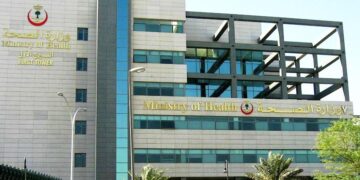Saudi Arabia is at the forefront of pioneering reforms aimed at advancing innovation in procurement and supply chain management across diverse industries, as reported at a recent industry forum in Riyadh. The Chartered Institute of Procurement & Supply’s MENA Conference spotlighted the crucial role of supply chain security, local content enhancement, and the refinement of governmental procurement expenditures in fostering a thriving future.
The Kingdom is harnessing state-of-the-art technologies to elevate efficiency in sectors ranging from water desalination to real estate, thereby driving economic expansion. The National Housing Co. (NHC) is at the helm of improving the Saudi real estate sector’s supply chain. Maan Al-Othimeen, General Manager of Supply Chain and Business Support at NHC, detailed strategic plans to enhance local production and support small and medium-sized enterprises, laying the groundwork for the government’s construction-related developmental goals.
These initiatives extend beyond the construction industry, setting a solid base for ambitious hospitality and mega-project endeavors. By 2030, NHC intends to deliver 600,000 residential units, propelling the sector’s growth and boosting the economy. Al-Othimeen emphasized NHC’s commitment to empowering local enterprises and fostering national workforce involvement through various initiatives, including Mawad, an online platform facilitating the interaction between contractors, developers, local manufacturers, and suppliers to simplify procurement, broaden options, and stabilize market prices.
Financial solutions are provided in collaboration with government bodies, banks, and financial institutions to propel local businesses, including developers and contractors, towards timely project completions in the property development sector. Additionally, NHC is bolstering local service providers with technology through awareness initiatives.
The success of these efforts is evident as the Mawad platform has achieved over $500 million in transactional value, secured 113 memorandums of understanding with local factories, and realized an average of 21 percent in savings, according to Al-Othimeen. The collaboration with Tawteen, the Kingdom’s human capital localization agency, and the nurturing of future workforce talent through initiatives like Wa’ed, underscore NHC’s dedication to sustainable growth and talent development.
As Saudi Arabia continues to transform its hospitality, tourism, and real estate sectors, a robust supply chain and workforce will be critical. The construction sector is anticipated to expand at a rate of 5.8 percent from 2023 to 2030, with market value projected to increase from SR189 billion ($50.39 billion) in 2023 to SR281 billion by 2030. This growth will be distributed across various sectors including hospitality, residential, energy, utilities, infrastructure, and industrial segments. In response to the rising demand for construction materials, NHC is planning to establish an industrial park specializing in manufacturing key building components, envisaging an integrated development encompassing industrial, logistic, and urban assets.
Within the framework of Vision 2030, Saudi Arabia has instituted initiatives to refine its procurement strategies. At the forum, Ahmed Al-Harbi, Executive Director of Government Procurement Efficiency, showcased significant advancements in digitalization and local content development. The digital transformation, initiated in 2018, has been exemplified by Etimad, a comprehensive digital platform fostering efficiency and transparency for governmental and private sector procurement. This platform enables sourcing, government travel arrangements, e-auctions, online tenders, digital contracting, and online payment processes.
Government procurement has seen a revolution through standardized purchasing templates, new methodologies, and improved payment procedures, resulting in cost savings, enhanced efficiency, and greater transparency. The Kingdom’s procurement and supply chain innovation are poised to lead in economic diversification and sustainable development. Notable accomplishments include over SR20 billion in cost savings through category management, the reinforcement of local content through numerous industry localization and knowledge transfer agreements, and additions to the national product mandatory list.
Efficiency in procurement has also improved, with a 15 percent reduction in the tender-to-award lifecycle and a 27 percent decrease in tender cancellation rates. Over the past three years, significant government expenditures have supported over 3,000 projects and 300 government initiatives, covering a wide array of products and services, with thousands of procurement orders and hundreds of procuring government agencies involved.
The Saudi Water Authority (SWA) has also undergone a noteworthy digital overhaul of its supply chain operations. Abdulrahman Al-Yousef, General Manager of Shared Services and Supply Chain at SWA, discussed the focus on enhancing efficiency and reliability through digitalization. Initiatives like smart warehouses and automation have led to a 98 percent reduction in time and a 400 percent increase in storage efficiency. SWA has embraced advanced analytics, artificial intelligence, and the Internet of Things to revolutionize procurement processes, achieving a 37 percent reduction in lifecycle duration. The Water Authority’s ongoing investments in renewable energy and eco-friendly technologies have made it a frontrunner in sustainable water management, operating 33 production systems with the latest eco-friendly technology, ensuring an efficient, automated supply chain while addressing the Kingdom’s increasing water needs.









